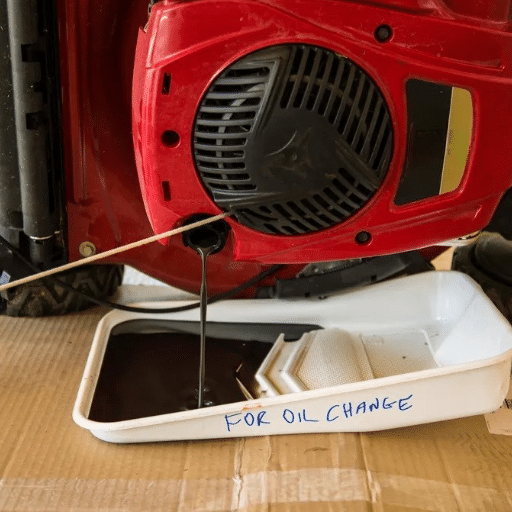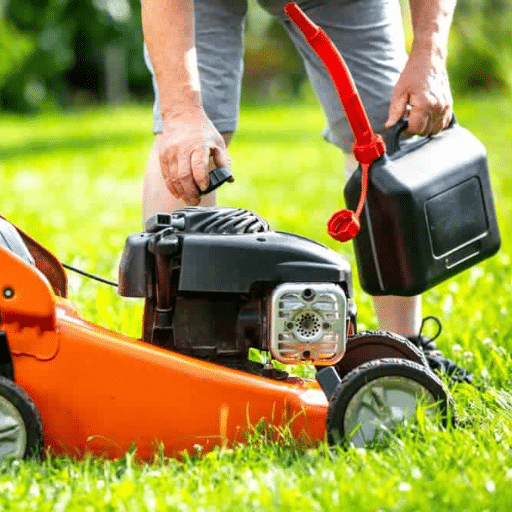Whether you’re maintaining a pristine yard or tackling thick vegetation, having the right tools is crucial. The trimmer brush cutter stands as one of the most versatile and powerful tools for combating weeds, overgrown brush, and tough grass. This comprehensive guide will help you navigate the market and find the perfect brush cutting tool for your needs.
Understanding Brush Cutters

Brush cutters are specialized tools designed to cut through dense vegetation, overgrown grass, and thick weeds that standard lawnmowers or trimmers cannot handle. These powerful machines are equipped with heavy-duty cutting blades or attachments that can tackle the most demanding landscaping tasks.
Key Considerations When Choosing a Brush Cutter:
- Power source: Gas, electric, or battery-powered options
- Engine size: Determines cutting power and capability
- Vegetation type: Match the tool to your specific cutting needs
- Usage frequency: Professional vs. occasional use requirements
What is a Brush Cutter?
Brush cutters are powerful and versatile gardening tools designed for cutting thick grass, weeds, shrubs, and small trees. Unlike standard string trimmers, brush cutters are built for demanding jobs, featuring robust construction and interchangeable cutting heads that can accommodate metal blades or heavy-duty string.
These tools come in various power configurations:
- Gas engines: Maximum power for heavy-duty applications
- Electric motors: Quieter operation with consistent power
- Battery systems: Portable convenience with modern lithium-ion technology
Types of Brush Cutters
Choosing the right type of brush cutter depends on your workload, terrain, and power preferences. Here are the main categories:
Gas-Powered Brush Cutters
Best for: Heavy-duty commercial use and large properties
Engine types: Two-stroke or four-stroke engines
Advantages: High power, cuts through dense vegetation quickly
Considerations: Heavier, noisier, requires more maintenance
Electric Brush Cutters
Best for: Residential use with noise restrictions
Types: Corded and cordless (battery-powered) variants
Advantages: Lightweight, quiet, environmentally friendly
Considerations: Limited by cord length (corded) or battery life (cordless)
Specialized Brush Cutter Types
| Type | Best Application | Key Features |
|---|---|---|
| Handheld | Small spaces, fence lines, edge trimming | Lightweight, ergonomic design, various power sources |
| Tow-Behind | Large properties, farms, fields | Attach to tractors/ATVs, adjustable cutting heights |
| Walk-Behind | Hilly terrain, dense growth areas | Self-propelling, larger wheels, gas-powered |
How Brush Cutters Work

Brush cutters operate through high-speed rotation of cutting implements, effectively slicing through tough vegetation. The cutting action depends on the type of attachment used:
- Metal blades: Cut by impact, ideal for woody material
- Nylon line: Cuts by friction, suitable for grass and soft weeds
Modern Safety Features:
- Adjustable handlebars for ergonomic operation
- Anti-vibration systems to reduce operator fatigue
- Interchangeable cutting heads for versatility
- Protective guards to shield users from debris
- Harness systems for better control and weight distribution
Top Brush Cutters for Different Applications

Here are the leading brush cutters for various needs:
| Model | Engine | Best For | Key Features |
|---|---|---|---|
| Husqvarna 336FR | 34.6cc | Heavy-duty professional use | Multiple cutting attachments, comfortable harness |
| Makita EM2650UH | 25.4cc 4-stroke | Residential medium-duty work | Low emissions, quiet operation, easy start |
| Stihl FS 131 | 36.3cc | Professional landscaping | Bike handle design, anti-vibration system |
| Troy-Bilt TB42 BC | 27cc 2-cycle | Versatile residential use | Attachment capability, budget-friendly |
| ECHO SRM-2620T | 25.4cc professional-grade | Precision cutting tasks | High torque, large fuel tank, padded handles |
Choosing the Right Brush Cutter Blade

Blade selection is crucial for optimal performance. Consider these options based on your cutting needs:
Metal Blades
Best for: Thick brush, small trees, dense undergrowth
Material: Steel or carbide-tipped
Durability: Long-lasting, handles tough jobs
Plastic Blades
Best for: Light grass trimming, soft vegetation
Material: Reinforced plastic or nylon
Benefits: Lightweight, easy to replace, cost-effective
Multi-Tooth Blades
Best for: Precision cutting, overgrown areas requiring neat cuts
Features: Multiple cutting edges, versatile performance
Application: Areas where surrounding plants need protection
Essential Safety Precautions
⚠️ Critical Safety Guidelines
- Protective Gear: Always wear safety goggles, gloves, sturdy boots, and ear protection
- Equipment Inspection: Check for loose parts, blade condition, and fuel leaks before use
- Area Preparation: Clear debris, identify hazards, and ensure bystanders maintain safe distance
- Proper Handling: Use both hands, maintain balanced stance, never operate one-handed
- Fuel Safety: Handle fuel carefully, allow cooling before refueling, use approved containers
Maintenance Tips for Optimal Performance

Regular Maintenance Schedule:
- After Each Use:
- Clean blades and attachments thoroughly
- Remove grass, debris, and dirt buildup
- Check for visible damage or wear
- Weekly (Heavy Use):
- Sharpen blades using proper angle and technique
- Lubricate moving parts and pivot points
- Check and tighten loose bolts
- Monthly:
- Inspect for cracks or structural damage
- Replace worn or damaged components
- Clean air filter (gas models)
- Storage:
- Store in dry, cool location
- Protect from moisture to prevent rust
- Hang equipment or use protective covers
Best Practices for Brush Cutting
Professional Techniques for Optimal Results:
- Pattern Work: Plan your cutting pattern in advance for efficient coverage
- Proper Attachment Selection: Match blade type to vegetation density
- Steady Pace: Maintain consistent cutting speed to prevent overheating
- Regular Breaks: Take frequent rest periods to prevent fatigue
- Equipment Care: Keep blades sharp and clean for best performance
String Trimmers vs. Brush Cutters: Comparison
| Feature | String Trimmers | Brush Cutters |
|---|---|---|
| Primary Use | Light trimming, edging, grass | Heavy-duty cutting, dense vegetation |
| Cutting Tool | Nylon string/line | Metal blades, heavy-duty attachments |
| Power | Lower power requirements | High power for tough jobs |
| Weight | Lightweight, easy to handle | Heavier, requires more strength |
| Cost | Generally more affordable | Higher investment for quality units |
| Versatility | Limited to light tasks | Handles wide range of vegetation |
References
-
University of California Agriculture and Natural Resources – Cutting: String Trimmers / Brush Cutters: Provides detailed insights into the functionality and applications of string trimmers and brush cutters.
-
Ohio State University – Handheld Trimmers and Brush Cutters: Discusses the versatility and uses of handheld trimmers and brush cutters for small farms and gardens.
Frequently Asked Questions (FAQ)
What is a brush cutter and how does it function?
The brush cutter is a very powerful gardening tool designed for cutting through dense vegetation, including brush, grass, and small trees. It usually has a metal blade or a string trimmer head that rotates so rapidly to work on areas that are overgrown. The kinds of brush cutters that can do a lot of brush cutting are great for trail clearing or backside maintenance of a big property.
Advantages of straight shaft trimmer?
Straight shaft is best offering advantages such as reach and balance, making it much easier to manipulate in tight spots. The design allows the blade to be parallel to the ground, which increases the efficiency when cutting overgrown grass and brush.
When selecting a brush cutter blade, how should I proceed?
It largely depends on what you intend to cut with the brush cutter. For light brush, perhaps a string trimmer head with a bump head would do. For tougher jobs, go ahead and use that spinning metal blade or brush blade. There are many options available from brands such as Stihl to suit your specific cutting purposes.
Are gasoline brush cutters more powerful than electric ones?
Gas brush cutters are normally more powerful than the electric ones that fall under heavy-duty assignment. They can take on thick brush and are mostly preferred by the professionals. Of course, electric models make less noise and are easier to maintain, which makes them appropriate for residential use.
Can a circular saw blade be mounted on my brush cutter?
Occasionally, it may just be possible to mount a circular saw blade on your brush cutter, provided it is compatible with the power head. However, you might want to check the manufacturer’s instructions first to avoid any damage to the unit or safety hazards.
What would be the best solution to use on overgrown grass?
Gas-powered string trimmer with a heavy-duty line head or a brush cutter with an appropriate blade: they usually work best on overgrown grass.
What are important features of a Stihl brush cutter?
Considering engine power, type of handle (loop handle or straight shaft), weight, and attachments would be what makes up your shopping list of features for a Stihl brush cutter. Landscape contractors favor Stihl units because of durability and performance.
What advantages would a shoulder strap provide when using a brush cutter?
The shoulder strap distributes the weight of a brush cutter on one’s body so that less fatigue is felt from prolonged use. It is especially beneficial during prolonged use of heavy gas brush cutters or clearing saws.
Where can I get the best models of trimmer and brush cutter?
The best B.Brush cutter and trimmer models can be found at Home Depot or at authorized dealers of brands like Stihl and Husqvarna. Furthermore, online stores avail a huge number of choices on models to fit anyone’s need and budget.









